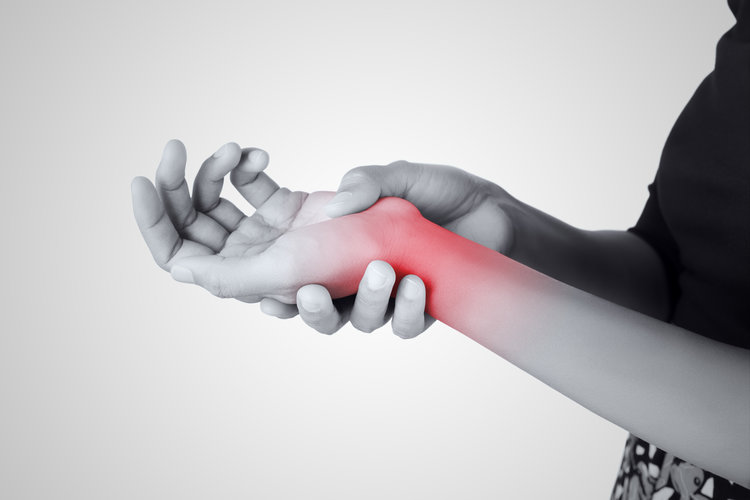The wrist consists of several ligaments and joints in between the hand and forearm, as well as the distal end of two larger bones called the ulna and the radius. Its anatomical structure is supposed to provide flexibility and strength so that you can move your hand back and forth, or grab and grip items with ease.
The most common reason for wrist injuries is a bone fracture when you have overexerted the use of your hand. However, wrist injuries may also happen because of repetitive stress that may result in carpal tunnel syndrome, or the inflammation of the tendons – as in the case of a patient with arthritis, or De Quervain tendinosis.
Symptoms of Wrist Injuries
The most common type of wrist injury is a fracture. Others include wrist sprain, strain, and wrist tendinitis.
Some symptoms of wrist injuries are easy to disregard, especially if the pain is still bearable. However, it all starts with pain and discomfort, which could progress to the swelling of the wrist, along with some numbness, dullness, or tingling sensation. Some discoloration may also be present.
In worst cases, the wrist may also become deformed and the person suffering from the injury may soon find that they can no longer use, or move their hand because the wrist has weakened.
When to Seek Medical Help
Even without any signs of discoloration, deformity or weakness of the wrist, it’s still better to seek the help of an orthopedic wrist doctor in Raleigh if the pain has become unbearable. There could be some broken bones, or injuries to tendons or joints that may only be determined with the proper diagnostic tests.
The doctor can order an X-ray, or imaging test to determine the extent of the injury. An orthopaedic wrist specialist can also conduct a physical exam of the wrist to check for range of motion, or wrist strength.
Blood tests may also be required to confirm if abnormal antibodies, or bacteria are causing pain. The wrist may be injured because it has an infection.
Treating Wrist Injuries
Depending on the doctor’s diagnosis, a wrist injury may be treated through:
- Complete rest of the hands and wrists for at least two days
- Ice compressions for 20 to 30 minutes two, or three times a day to help reduce the swelling
- Pain relievers, or anti-inflammatory painkillers
- Wearing a brace, cast, or split to compress the wrist, and allow stabilization
- Physical therapy and exercises
- Cortisone shots
- Surgery
However, while accidents and injuries can happen to anyone, a person is at a higher risk of sustaining a wrist injury if they are:
- Engaging in sports like bowling, golf, gymnastics or tennis.
- Working in an environment with repetitive motion such as frequent use of power tools, typing on the keyboard, or being at an assembly line.
- Has a history of arthritis, or carpal tunnel syndrome.
Preventing Wrist Injuries
The best way to manage a wrist injury is through prevention. A person at a higher risk must be proactive in protecting themselves by building bone strength through calcium supplements and calcium-rich foods. They must also be mindful to use protective gear, such as a wrist guard, especially when participating in sports activities.
They should also regularly exercise and do stretches to strengthen the body’s musculoskeletal structure. This way, their body can handle physical stress better when they are doing repetitive activities, or putting force on their wrist.
Where to Find an Orthopedic Wrist Doctor in Raleigh
If you are looking for an orthopedic wrist doctor, Raleigh Orthopedic Clinic is the place to go. We have board-certified fellowship-trained hand and upper extremity surgeons who bring together many years of experience in diagnosing, managing, and correcting various conditions, which can literally run from the fingertips to the elbow.
Make an appointment with one of our orthopedic wrist doctors in Raleigh (or our other locations) to get specialized treatment with a personal approach. For inquiries, don’t hesitate to Contact Us or call us at 919-781-5600.
The material contained on this site is for informational purposes only and DOES NOT CONSTITUTE THE PROVIDING OF MEDICAL ADVICE, and is not intended to be a substitute for independent professional medical judgment, advice, diagnosis, or treatment. Always seek the advice of your physician or other qualified healthcare providers with any questions or concerns you may have regarding your health.
